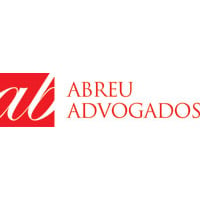

Partner | Trinity






Fiona Gulliford
Partner | Trinity
Based in: Number of years practice: 13
Principal practice areas: Project finance and commercial projects
Languages spoken: English and French
What is the geographical focus of your practice in Africa?
Pan-African practice with a focus on North and Francophone Africa, West Africa and East Africa.
Please describe the most important matters you have worked on in the African market in the last two years, including your role and the significance of the matter (if any) to the development of business and law.
I have worked on several key deals in the African market over the past two years, [including] the first solar photovoltaic project in the World Bank Scaling Solar programme to reach financial close: the Bangweulu Project in Zambia. We advised Neoen in respect of the development and financing of its 45 MW Bangweulu solar photovoltaic project in Zambia. The project was one of two projects that were awarded in the World Bank Group’s Scaling Solar programme and the first to achieve financial close in early 2018. Neoen’s co-developer is First Solar, the biggest US solar panel producer. I advised Neoen on all aspects of the development and financing of the project, including the corporate and shareholder arrangements, power purchase agreement, government support agreement, construction contract, operations and maintenance agreement and the finance and security documents. The project was financed by IFC and OPIC and was supported by a World Bank Partial Risk Guarantee from IBRD. The project made headlines upon its award for reaching a new benchmark in renewable energy prices in sub-Saharan Africa.
Also, I am currently advising the lenders in respect of the financing to a project company (owned by Gigawatt Global) on a 7.5 MW solar photovoltaic project in Mubuga, Burundi which, when it reaches financial close, will be the first ever private independent power project in Burundi. When completed, the project will increase the installed capacity of Burundi by 14% and will be the largest private international investment in the power sector in Burundi for nearly 30 years.
I am also currently advising Voltalia in relation to the development, construction, financing and operation of a solar photovoltaic plant in Malawi. This project is one of the three recently awarded plants in-country and will be one of the first solar power projects in the country.
I am also advising Electrification Financing Initiative (“ElectriFi”), which is a flexible financial facility funded by the European Commission and managed by the Association of European Development Finance Institutions. ElectriFI aims to support investments that increase and/or improve access to modern, affordable and sustainable energy services. Through its investments, ElectriFI promotes the adoption of renewable energy, with a particular emphasis on decentralized energy solutions. ElectriFi are to provide a senior term loan to a company which imports solar home systems into developing countries. The proceeds of the loan will be applied by the company to develop and sell their solar home systems, on lease to own contracts, in Mozambique. Security for the transaction will be provided in multiple jurisdictions and Trinity is co-ordinating the drafting and negotiation of the security and intercreditor arrangements with existing Lenders.
Finally, I have advised on a variety of matters including the proposed roll out of small scale solar photovoltaic plants in South Africa, a sponsored development, design, construction and operation of minigrids in Kenya, the negotiation of an initially concession based port project in Senegal, and a solar power project to be constructed by a French developer in Guinea (Conakry).
What differentiates your practice from that of other private practice lawyers?
We are very much an emerging market focused law firm. I have tried to differentiate my practice by focusing on different types of energy solutions – and this year I have undertaken a large number of off-grid transactions, whereas the value of off-grid and size of projects does not always mean city lawyers will focus on do this work. It is very much a practice that looks at all aspects of developing markets – from the big billion dollar geothermal IPPs to the small million dollar solar home system financings.
I also have experience in the nuclear sector – both construction contracts and nuclear fuel supply. Whilst this was mainly in Europe (Hinkle Point) I also reviewed contracts for the aborted South Africa proposed nuclear project rounds, and am well placed to advise on nuclear power if it is chosen as a form of “clean” energy for
more developed African markets.
Why has Africa been a particularly strong focus for you?
Africa has been a focus for me because it is an active developing infrastructure market, and provides many “first of a kind” projects. As noted above, off-grid has been a key focus, and Africa is particularly relevant for off-grid because even with new energy projects being built, most countries have not also updated the transmission and distribution networks necessary to provide that energy country-wide.
Off-grid power provides opportunities for rural and isolated communities, and in many ways it can be seen as a way of empowering those who would not otherwise have had access to trade – such as sewing machines for women – which can help build rural economies and bring about important social change for under-represented communities.
What changes have you seen in the appetite for Africa-based ventures and investments over the last five years?
I think there are a number of key changes, in particular significantly lower energy tariffs and IRR on renewable energy projects – due in part to the decreasing cost of renewable technologies like solar, and the introduction of programmes like the World Bank Scaling Solar Programme.
There is also more interest in Francophone markets from Anglophone investors – where these markets were relatively unexplored by Anglophone developers or investors – Ivory Coast is a good example of this.
There has also been more small scale off-grid investment; buoyed by the relative success of off-grid power in East Africa, the model is being adopted for West Africa.
There has also been more investment in sub-Saharan Africa from Northern Africa – in particular Morocco – which is looking very much to outward investment in the region.
Are there any aspects of the African legal market that you would like to see change?
The key issues for most deals is bankability – which is based largely on the credit records of governments and government based project counterparties. More programmes designed to mitigate credit risk – like World Bank Partial Risk Guarantee, or the Regional Liquidity Support Facility (an ATI Insurance backed letter of credit facility funded by KfW – which Trinity helped to design).
Until these types of risks can be more easily mitigated different types of investment will not be attracted to the region.
What megatrends do you think will shape the African market over the coming five years? How (if at all) will these trends affect your practice?
Less large scale IPPs – so we will work on more innovative but perhaps smaller transactions, as well as more off-grid, and off-grid that may be supported by host governments to attract the necessary the investment needed to crate mini-grid which can connect to the grid and power larger communities and towns.